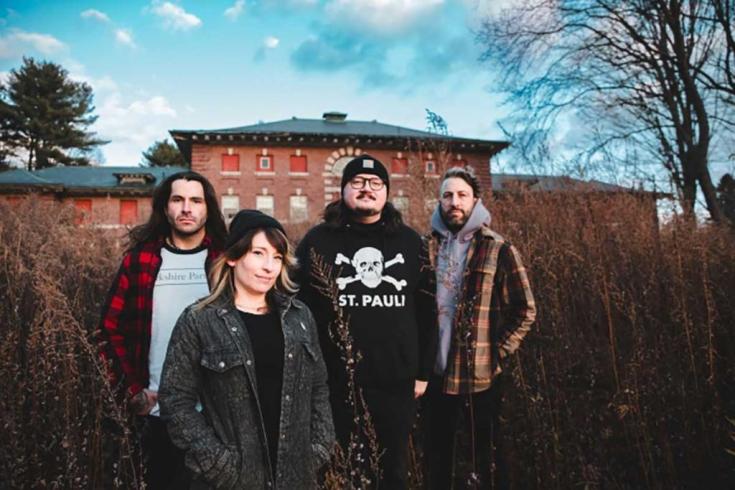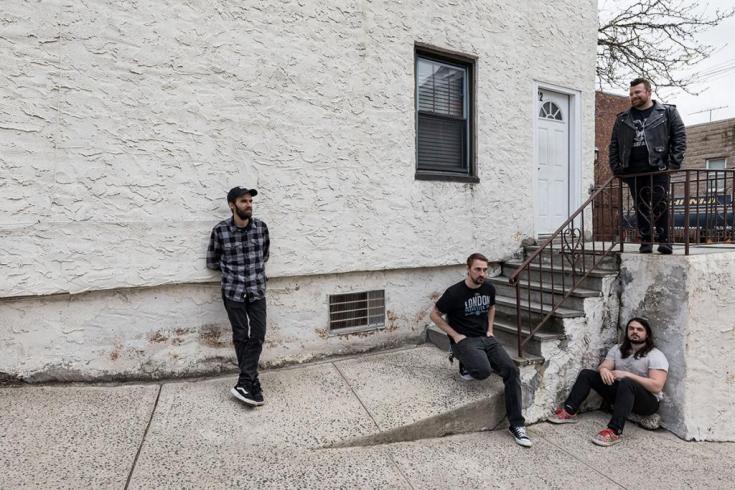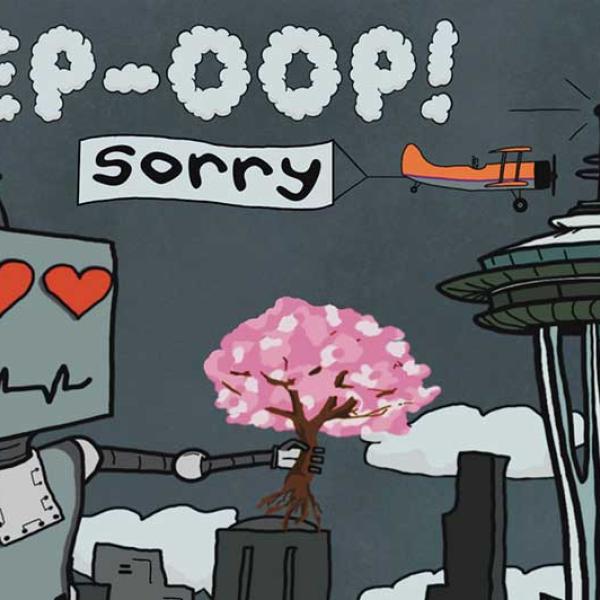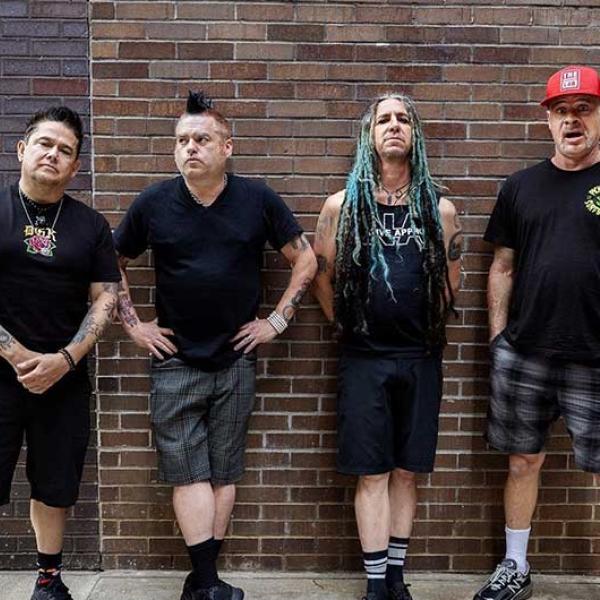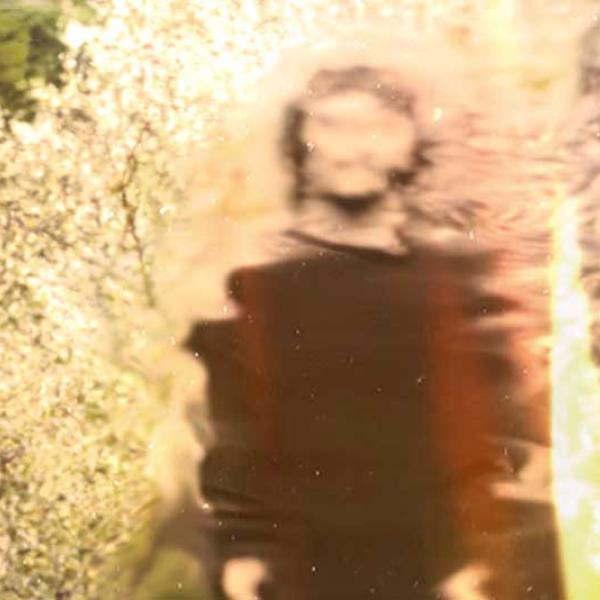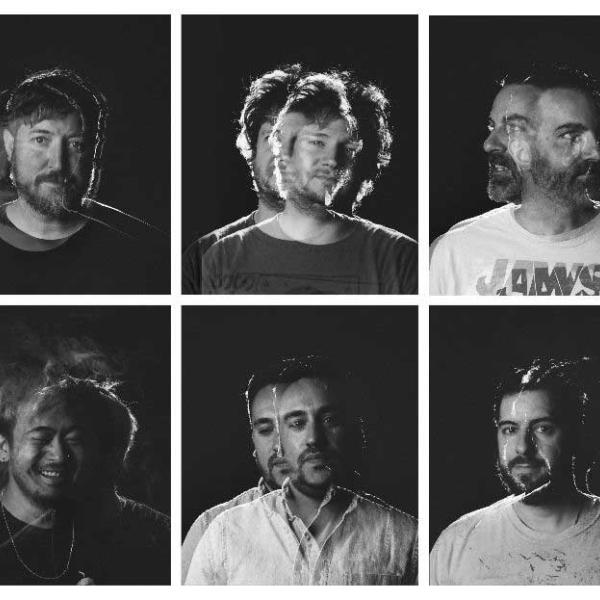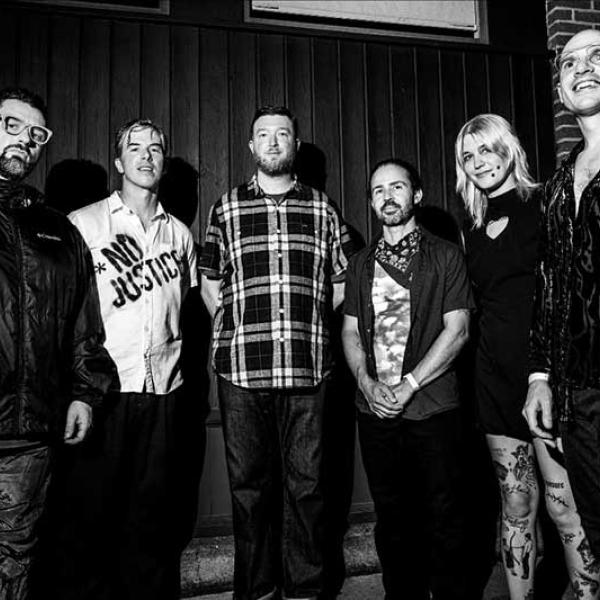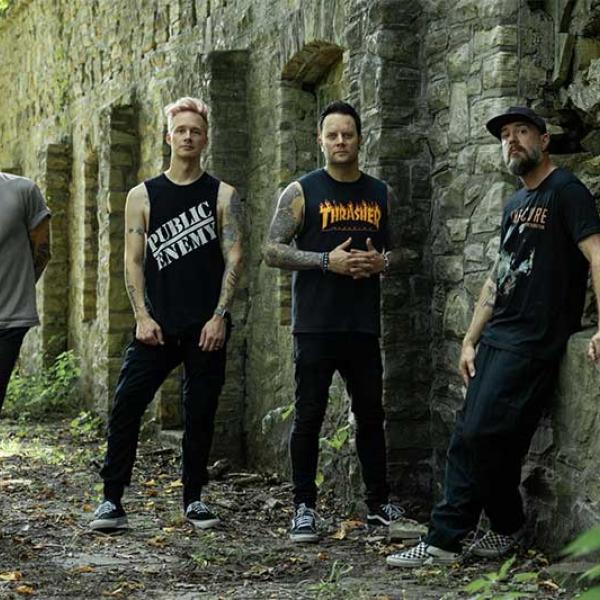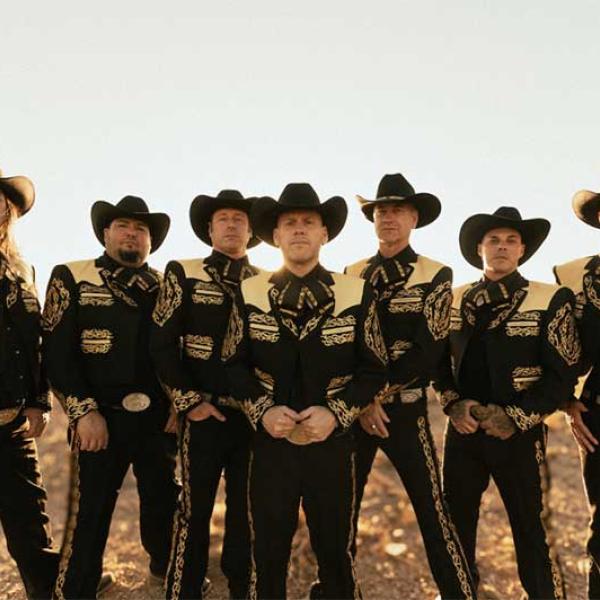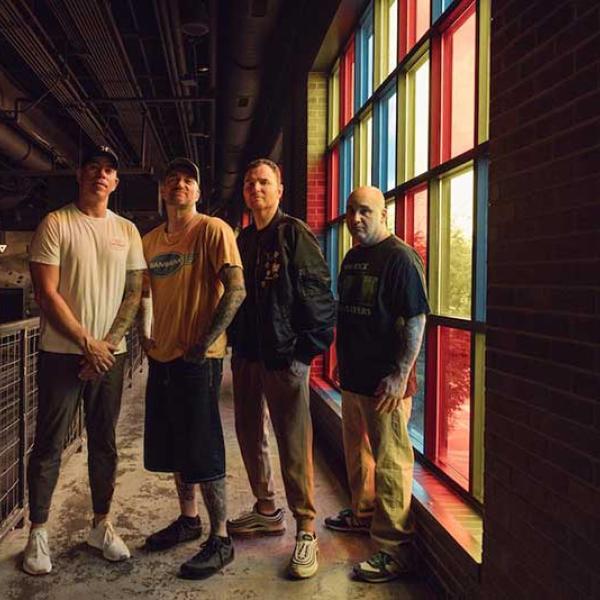Features
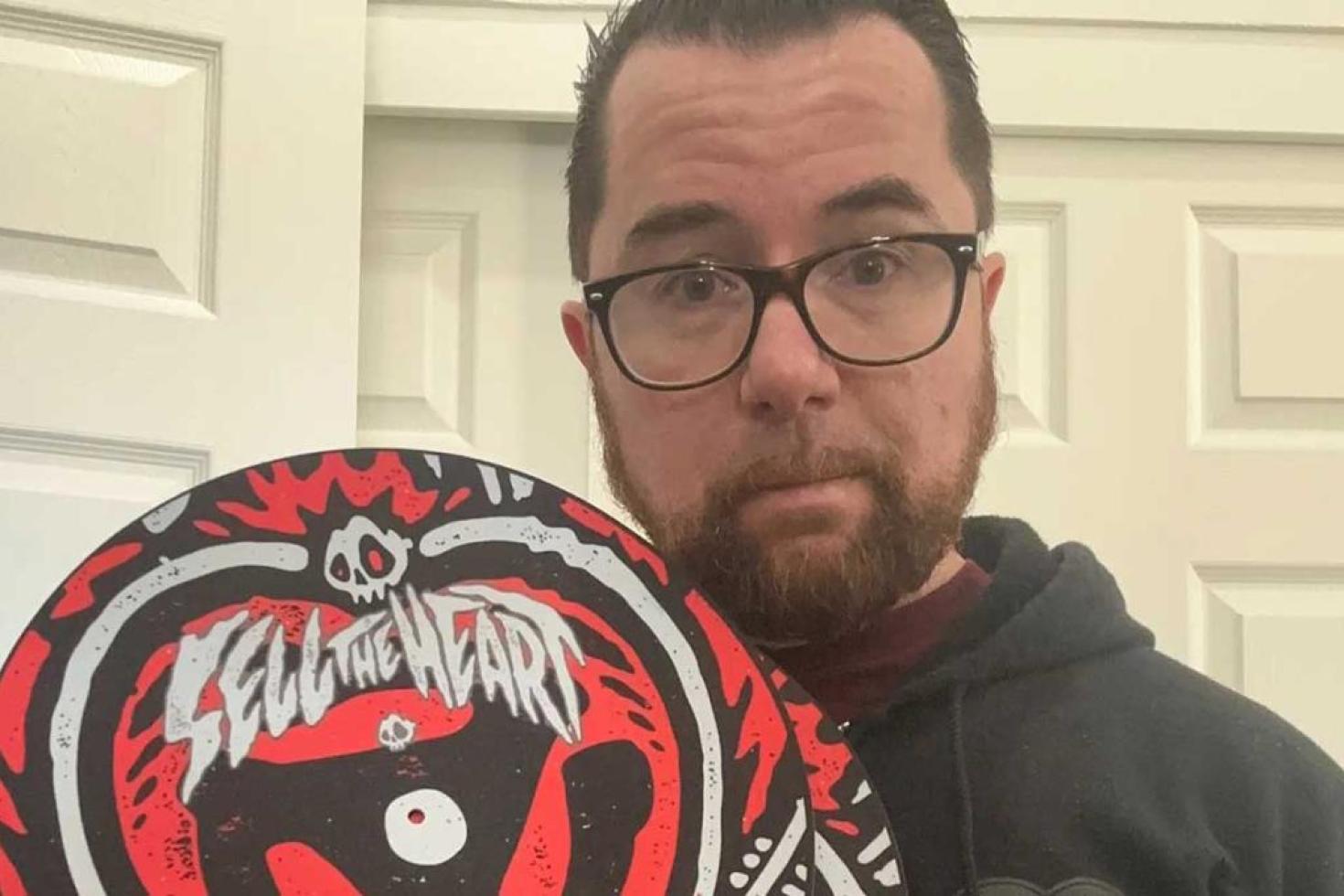
What starts over beers with friends doesn’t always turn into a legacy—but sometimes it does. Andy Pohl launched Sell The Heart Records fifteen years ago with little more than a love for music and a drive to document the vibrant Northern California punk scene. Since then, the label has grown into a respected DIY institution, releasing nearly 100 records from a broad range of artists, always guided by a community-first ethos and a genuine passion for helping great music find its audience. We caught up with Andy to reflect on lessons learned, underrated releases, and what keeps him going.
PRT: Can you remember the exact moment when you decided to start a label?
Andy: I can't say that I remember THE EXACT MOMENT, but it really came about after some conversations I had with a group of pals in the music scene up in Santa Rosa over beers. We all agreed that there was a really good music scene in the area and someone should be documenting it, so we ultimately thought... why not us???
PRT: What does DIY mean to you in 2025, and has that changed since the label started?
Andy: DIY in 2025 means carving your own path and not necessarily relying on any specific set of rules or methodologies. There has never been a time where as many resources that were once very closed off to labels and artists have been as accessible. It's made it "easier" in many ways to make things happen, but it also makes it "harder" since there is now such a glut of music being released ALL THE TIME. Not that there hasn't always been a lot of music to sift through, but it does really FEEL like there is far more music than you could ever possibly consume, and that can be overwhelming... That's the biggest difference that I feel, personally.
PRT: Did you have any idea what you were getting yourself into beforehand or did you learn the ropes while running the label?
Andy: I had an idea of what it would be like, based on conversations I had with friends that had run labels or were running them at the time. They all said the same thing when I asked for their advice... "don't do it!". They were serious, but also kind of joking as they knew that if I really wanted to do it I was going to do it anyway. I learned very quickly that it is far more expensive to run a label and incorporate all of the things that go into it, like PR, material costs, etc... it adds up quickly. And the amount of time you have to spend to make things happen is far more than you'd think... but after a while you learn ways to do things quickly but still effectively.
PRT: Have there been any expensive lessons that you learned the hard way?
Andy: The most expensive lessons I've learned are related to promotional costs. As not to say anything too out of turn here... advertising and pr costs are one of those things that, while necessary, just seem to really destroy any chance of being able to turn a profit on the release of an album (at least from a label's perspective). I've had albums where I paid for a PR campaign and it clearly didn't do a single thing to drive sales forward, and you just have to "eat" those costs.
Also, packaging can start to get VERY expensive if you aren't careful. While the idea of doing a special heavy duty jacket material, and 180 gram vinyl, and 5-6 variants of a record sounds nice... it all drives the per unit costs up, and in order to make any kind of return on your investment, you now need to sell through even more albums. I've learned to keep things kinda standard and lean, but thankfully, still offering a quality product at the end of the day
PRT: And knowing what you know now, would you do it again?
Andy: If I knew then what I know now, I would absolutely do it again... BUT, I would start off with a much more streamlined process that is more "contained" and realistic. While I can say that for the most part, the label has "paid for itself" over the years, I know that there were opportunities that I didn't take that would have actually been able to see more growth and a wider audience for the bands I work with. The main one being leaning more into streaming out of the gate, and pairing up with a physical distributor earlier on.
PRT: What did you spend your first million on that you made from running the label? Seriously though… I can imagine that running a one-man record label on top of everything else you have going on, can be quite time-consuming and probably not always fun. What is it that keeps you going?
Andy: It is EXTREMELY time consuming, and definitely not always fun. But, I can say that for the most part it is a pretty fun hobby to have. I try to treat it as just that, a hobby. The goal is and has never been to turn a profit... as long as it "pays for itself" I am happy as far as that goes. And I genuinely really love all of the bands I work with and their albums, I wouldn't do it otherwise. That is what keeps me going... knowing that I'm able to help out some bands that are making great albums get into the ears and eyes of folks that otherwise may not know about them. It's a good feeling. Oh, and the first million is being spent on funding a reunion show for a band that rhymes with Shmoperation Spivey
PRT: How have changing formats (vinyl resurgence, streaming) affected how you plan releases?
Andy: We started out with CDs, and then launched vinyl not too long afterwards as our focus. Vinyl and streaming has been our primary focus for the better part of the 15 years, though we have released some CDs here and there when it felt warranted. CDs do still sell, especially for bands at shows.
In terms of how it affects our planning, the main thing I always try to consider is how long it will take for the plant to press the vinyl. As we saw during the pandemic, it was taking upwards of 8 months to get a single album pressed due to supply shortages and such. It caused such a problem with pre-orders and such. Thankfully it has gotten MUCH faster since there are more pressing plants now... you can turn around a run of 300 12" LPs in 4 weeks in some cases.
Digital is easy... you can literally be releasing songs the minute they are mastered. But we try to really do a standard build up with singles being showcased prior to the full album, and then the full album release. So it is typically a 1-3 month cycle in most cases for a full-length album (no including the recording/mixing/mastering and pressing)
PRT: What is the nicest compliment someone has ever given you about the label?
Andy: Though I cannot recall any specific thing that someone said exactly, the best compliments that I've gotten over the years have come from folks that have commented on the diverse lineup of bands we have on the roster and how they think that it's refreshing to see that. Most labels lean into one genre specifically, which is actually a really smart way to operate. I've just never really had 1 specific genre that I love more than another, so I've kept it a bit more open-ended. Even though most folks that I know tend to have a broad range of genres that they listen to and appreciate, it still feels like a lot of times that folks tend to stay within a certain lane so-to-speak. But I am glad that I've been able to open some folks' minds about different bands than they are used to being exposed to.
PRT: By the end of the year, you will be up to 93 releases. I am not going to ask you which one is your favorite, but what are the three most underrated albums in the Sell The Heart catalog that definitely deserve some more love?
Andy: That is a great question! And yeah, it's hard to play favorites when there are so many solid albums that we've released. But if I had to pick three that are underrated or overlooked, they'd be the following:
1.) States of Nature: Brighter Than Before - This band, now broken up, released two albums on the label, both of which are absolutely fantastic. It's like a blend of Dischord Records sounding punk mixed with some modern garage/psych/shoegaze elements ala Thee Oh Sees, Queens of the Stone Age, High Vis. Just killer songs, well recorded, translated well both live and on the album
2.) The Blackburns: The Blackburns - Hot damn does this album rule. I'm honestly kinda shocked that we didn't burn through the 100 copies we pressed on vinyl super fast. It's such a nostalgia bomb while at the same time feeling fresh and fun. The band has a sound that is reminiscent of the great 90s era alt-pop bands like The Lemonheads, Superdrag, Gin Blossoms, etc. It's the type of album you can both listen to intentionally and have as background music and it works well in both cases because it has such good, well-written songs, but it sets a nice mood, too.
3.) RLND: Zealand - The label has released a few post-rock albums over the years, and this album is my favorite of that cohort. It's mathy without being too over the top, and the production is absolutely stellar. It was another album that came out during the peak of the pandemic, so it was hard for us to really promote it well, and the band wasn't able to really play any shows around it, so that kinda hurt it from getting more attention. They produced a couple of incredible music videos for the album, too, which really complimented the sound. Super riff heavy post-metal that folks that dig Animals As Leaders and Russian Circles would really dig
PRT: What do you look for in an artist when signing or working with them?
Andy: The main thing I look for is whether or not I like the music (if it's an artist I've never heard of or have a relationship with). If the music hits, then we can start having a conversation and go from there. At that point, I look for bands that are actually showing that they can be consistent with their live shows, social media engagement and aren't just going to be doing things haphazardly. Too often this is the case and I have to be careful as to not get into a relationship with those kinds of bands, simply because it starts to feel like those group projects we all did as kids where 1 person does all of the work and the others just don't do anything. Just because you've written the songs and recorded the album doesn't mean you get to do NOTHING to promote and sell it - you have to work just as hard as I do if not harder when it all boils down to it.
PRT: Some of those releases were compilations, where you donated the profits to good causes. Is that because you feel like a punk rock label has a role to play in community activism?
Andy: I definitely believe that is true. While I wouldn't go on record to say that it is without question the duty of any musician to have to take a stand on something, I do feel like it is a vital piece of what makes music scenes, and particularly the Punk scene, what it is. Art is meant to be enjoyed but it also meant to be thought provoking, educational, inspiring, and perhaps even subversive.
It's clear that we live in a world where the people in power just aren't that interested in helping out the vast majority of people on the planet beyond meeting their most basic needs (if that), so it is up to US to help each other out where and when we can. I am a firm believer that if you have the means to help, you should. When you cannot, it's not anything that you should ever feel shame for... we've all been there. I know that with the label, I can do something, even on a small level, to do something good in the world, and thankfully the bands all feel that way, too.
PRT: Speaking of compilations, what was your favorite label compilation growing up?
Andy: Oh wow... great question. There were so many great compilations back in the 90s, so it's hard to pick just one. I would have to say that my favorite would be Short Music for Short People from Fat Wreck Chords. Though not every song on there is from a Fat Wreck Chords band, many of them are. I just loved how they were able to get so many rippers onto the comp.


